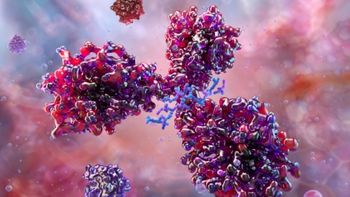
Discussing Proper Analysis of HCPs in Biomanufacturing (AAPS PharmSci 360)
The importance of proper analysis of HCPs in the biomanufacturing process was discussed by Shawn Li, principal scientist at Merck & Co., known as MSD outside the Unites States and Canada, at AAPS PharmSci 360.
Editor's note:
The Pharmaceutical Technology Group spoke with Xuanwen (Shawn) Li, PhD, Principal Scientist at Merck & Co., known as MSD outside of the United States and Canada, during AAPS PharmSci 360 about the importance of properly analyzing host cell proteins (HCPs) during the biomanufacturing process.
“Host cell proteins are process-related impurities in biopharmaceutical manufacturing. The identification and control of a high-risk host cell protein in biopharmaceutical development is critical to ensure biopharmaceutical product quality and shelf life,” Li stated. For example, he explained, certain HCPs can have direct biological effect, and some HCPs can degrade the drug product or formulation excipients such as polysorbate. “The host cell protein issue can lead to significant delay or product withdrawal … Therefore, it's extremely important to understand how to properly analyze host cell proteins in biopharmaceutical manufacturing,” Li said.
At Li’s
Click above for the full interview
Merck exhibited at AAPS PharmSci 360, which took place Oct. 21–23 at Salt Lake City, Utah.
About the speaker
Xuanwen (Shawn) Li, PhD, Principal Scientist, Merck & Co.
Shawn Li is a principal scientist and scientific supervisor in the Analytical Research & Development, Mass Spectrometry group at Merck & Co. Inc. His research is focused on mass spectrometry-based biologics and vaccine characterization for chemistry, manufacturing, and controls (CMC) development and regulatory submission. Prior to joining Merck in 2018, Li worked as a research scientist at Eli Lilly and Company on protein characterization. Before his industry career, Li was a director of the mass spectrometry facility at the Institute for Translational Medicine and Therapeutics at the University of Pennsylvania. Li received a PhD in proteomics at the Hunan Normal University in China and completed his post-doctoral training in clinical pharmacology and bioanalysis at the University of Pennsylvania.
Newsletter
Stay at the forefront of biopharmaceutical innovation—subscribe to BioPharm International for expert insights on drug development, manufacturing, compliance, and more.




